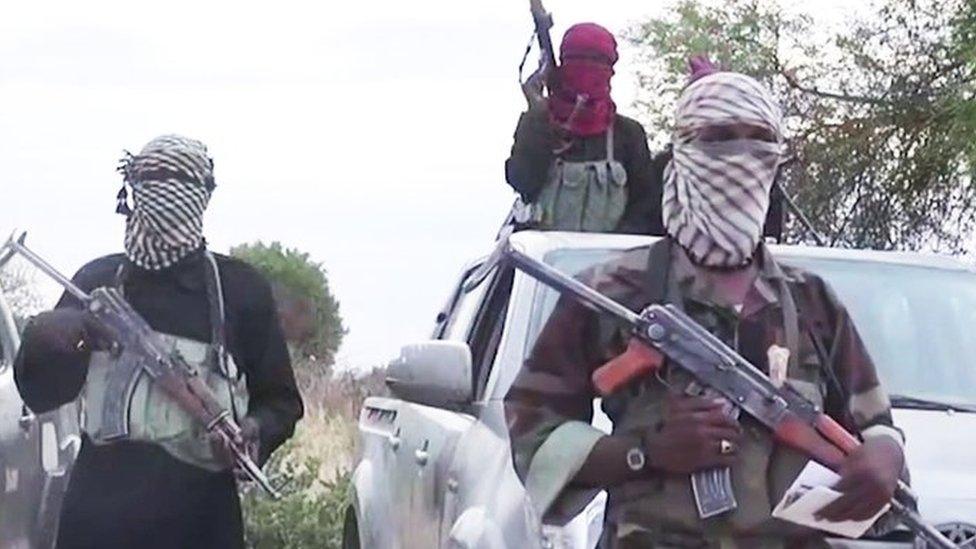Nigeria's Boko Haram crisis: Dapchi anger over missing girls
- Published
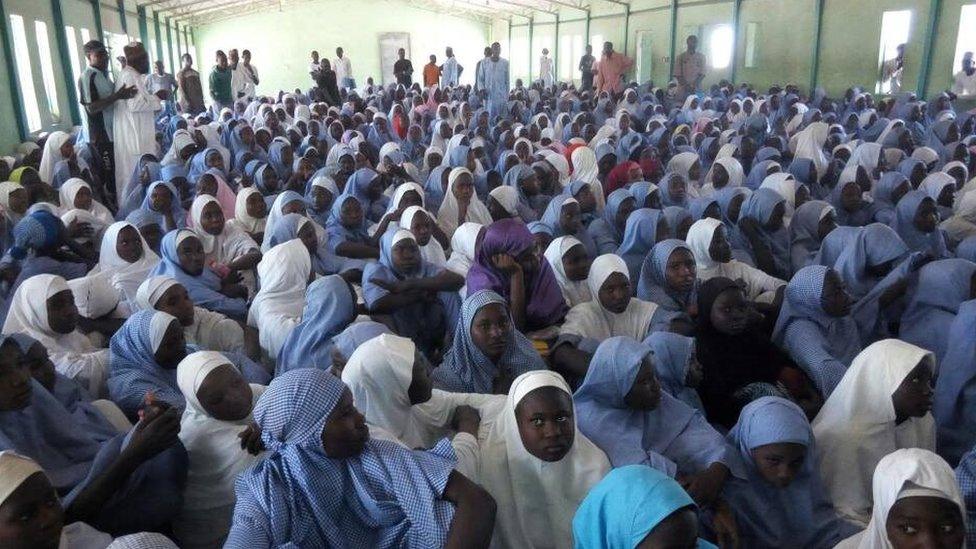
The number of missing girls is being disputed by parents
There is growing anger among the parents of a group of missing Nigerian schoolgirls following an attack by Boko Haram on Monday night.
Parents of pupils who disappeared from their boarding school in Dapchi told the BBC their girls were still missing.
The state government has apologised for issuing a statement on Wednesday that said some had been saved by the army.
"We have now established that the information we relied on to make the statement was not credible," it said.
The Nigerian activist group, Bring Back Our Girls, has called on the government to release a list of the names in order to clarify how many pupils are missing.
The group was set up after the abduction almost four years ago of 276 girls from a school in Chibok, also in north-eastern Nigeria.
Parents fainted with shock
Parents originally said that around 100 children were thought to be missing following the attack in Yobe state.
Officials placed the figure far lower, at around 50, and initially said they had not been abducted. Instead, they were said to be hiding in the bush after fleeing the attack,
Then, in a statement released on Wednesday, the Yobe state government said they had been told by the army an unspecified number of girls had been rescued from the "terrorists who abducted them".
Reuters news agency quoted parents and a government official as saying two girls had died, 76 had been rescued and at least 13 were still missing.
But the state governor has backtracked on the statement and said the girls had not been found after all - leading five of the parents present at the briefing to faint with shock.
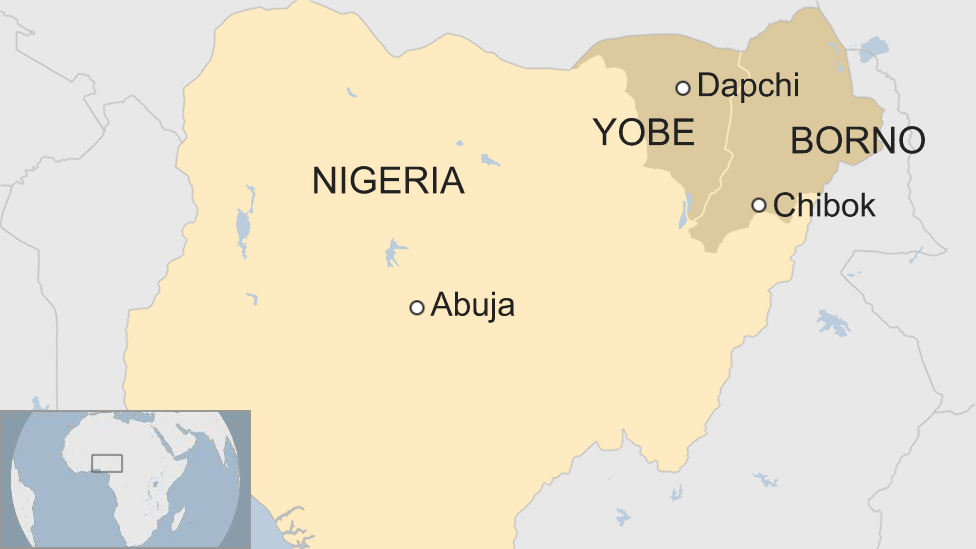
One parent, Kundiri Alhaji Bukar, told BBC Hausa: ''[The governor] said soldiers were dispatched but the military commander told him they could not locate the girls with the Boko Haram militants.
"He said no-one is really sure whether the girls were taken away by Boko Haram. But we on our part, we believe Boko Haram abducted the children."
Another parent, speaking anonymously, said people had been commending the authorities on their quick actions, but the change of position "angered the people".
"Many people broke into tears; some even collapsed," the parent said.

Analysis: A chilling echo of Chibok
By Will Ross, BBC World Service Africa editor
Although everyone is hoping this is not the case, as the hours go by following Monday's attack, there are worrying echoes of the 2014 Chibok abduction.
Back then, the military and the government initially denied the kidnappings and stayed silent as the jihadists drove more than 270 girls into the bush and set up camp.
The authorities seemed astonished that anyone would care about the fate of the missing girls, told lies about what had happened and only woke up to the horror of the event after a campaign to "Bring Back Our Girls" had gone viral around the world.
Four years on and we are once again getting denials and misinformation from the authorities and disbelief and anger from the parents. And it is unclear how many are missing.

Dapchi, about 275km (170 miles) north-west of Chibok, came under attack on Monday, causing students and teachers to flee into the surrounding bush.
Residents say that Nigeria's security forces - backed by military jets - later repelled the attack.
Locals living near the school told the BBC that many of the girls who had fled had been found after hiding in surrounding villages - some up to 30km away.
Yobe's police minister said that 815 of the school's 926 students had later returned to the school.
President Muhammadu Buhari has sent ministers to the area in a fact-finding mission.
What has happened to the Chibok girls?
Last September, a group of more than 100 of the Chibok girls were reunited with their families at a party in Abuja.
Most of the group were released in May as part of a controversial prisoner swap deal with the Nigerian government that saw five Boko Haram commanders released.
But more than 100 schoolgirls are still being held by Boko Haram, and their whereabouts are unknown.
Boko Haram militants have been fighting a long insurgency in their quest for an Islamic state in northern Nigeria. The conflict is estimated to have killed tens of thousands of people.
The Chibok girls represent a fraction of the women captured by the militant group, which has kidnapped thousands during its eight-year insurgency in northern Nigeria
- Published4 January 2018
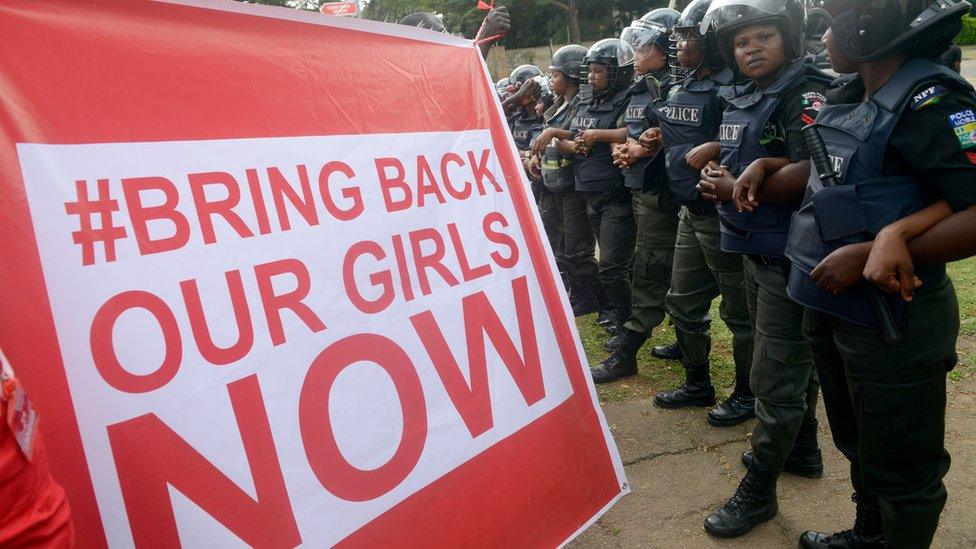
- Published24 November 2016
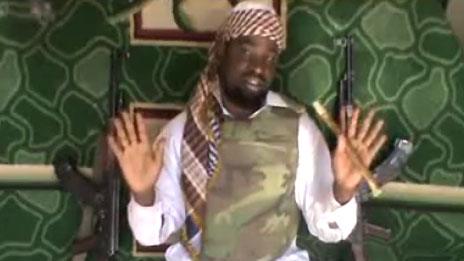
- Published14 April 2017
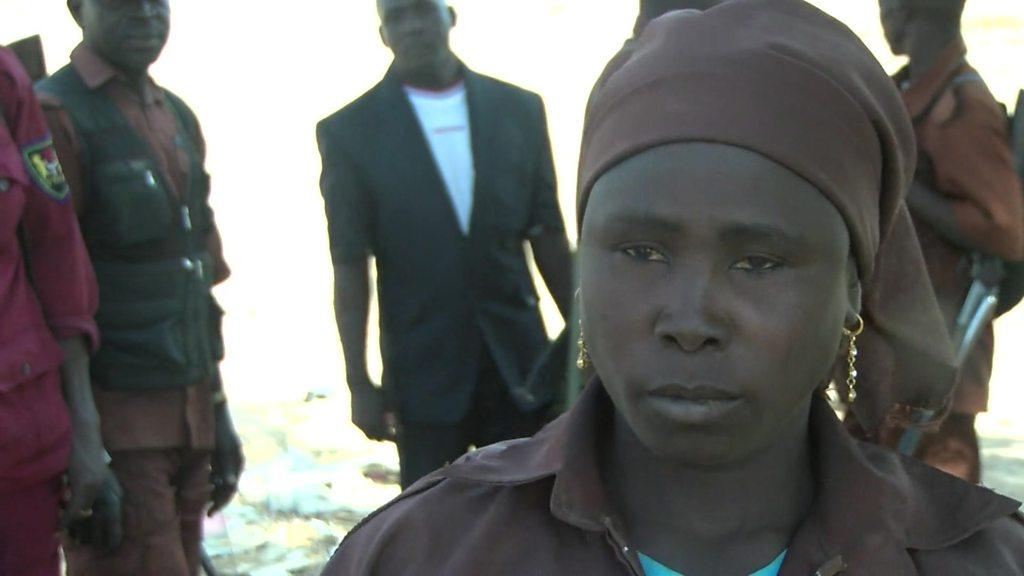
- Published31 March 2017
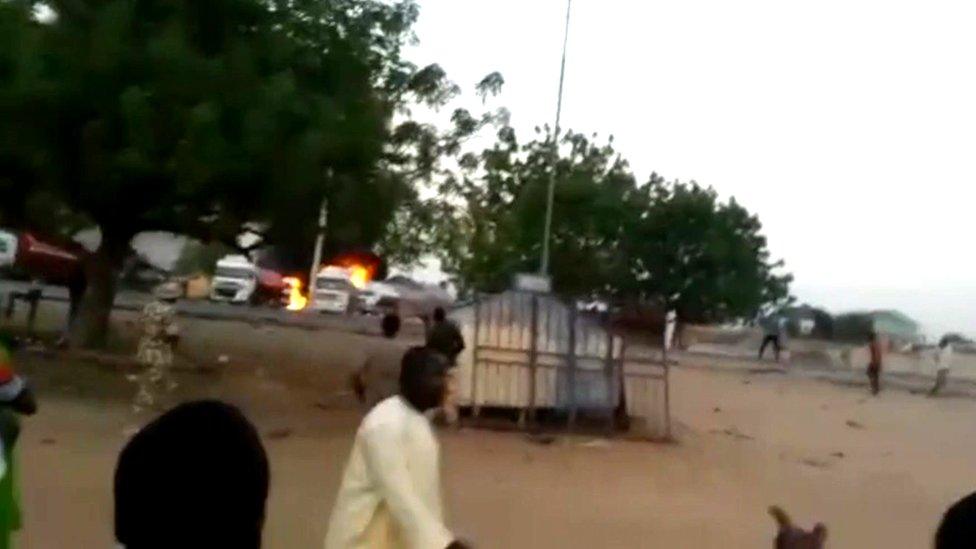
- Published25 January 2018
